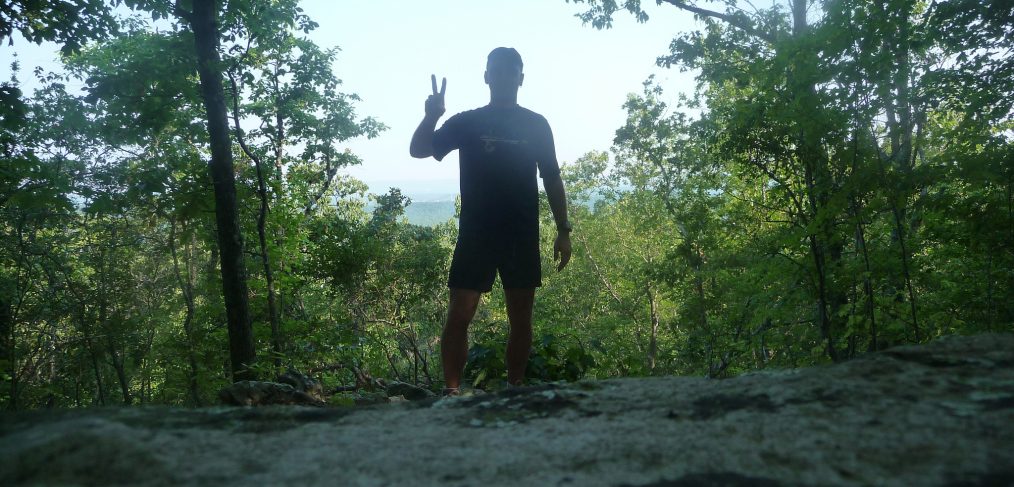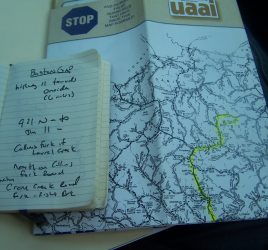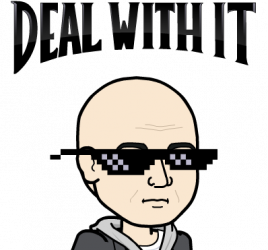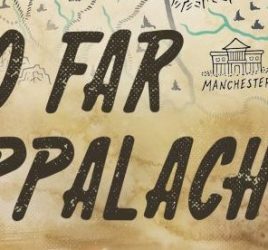
About That Thing You Ask Me About Hillbilly Elegy
I’ve been an outspoken advocate for Appalachia for the better part of the last decade. My writing and speaking about the region ramped up quite a bit once I started writing So Far Appalachia, a creative memoir about my family’s role in founding Clay County and the slow and inevitable slide of the area to become of the poorest in the country. Clay County — and the story of my family — are a case study in how we ended up where we are today.
For some time, there weren’t many people talking about Appalachia. Certainly, there were academic conferences, the occasional memoir, and a slew of exploitative “reality” television programs. But nothing much existed within the cultural zeitgeist that kept our attention.
Until two events: the release of J.D. Vance’s Hillbilly Elegy and the election of President Trump.
I was late to Hillbilly Elegy. I’ve always been slow to read books about the region because our history is rife with people exploiting the region — and its people — for political purposes, painting the geographic area as a place where wild, uneducated, and dangerous people live.
But after the election of President Trump, I rarely went a day without somebody asking me what I thought about Vance’s book. Appalachia was on everybody’s mind.
For those of you who have not read Vance’s book, Hillbilly Elegy is the story of Middletown Ohio, a small Northern Industrial town, and Appalachia that is slowly dying. Like So Far Appalachia, Vance’s story is one that uses the personal to talk more broadly about the regional.
Vance’s book is a bestseller, having already sold more than 240,000 copies. Because of this, he’s voice has become dominant in the media sphere, particularly in the conservative media that took his message of self-determination as the driving explanation for Appalachia’s dire straits.
As you might imagine this has angered many on the left. His conclusions in the book, that people in places like Middletown should simply work harder if they want to succeed, rankled many. If you want a nice snapshot of that anger, take a moment to read Sarah Jones, Jared Yates Sexton, and Hari Kunzru. These will give you a pretty good idea of how the book was received by liberals.
The conservative media’s lauding of Vancen and the anger in those reviews and make sense when you view each individually and without a larger context.
If this is the only story that you read about Appalachia, if this is the only story you read about the people from the region, then the book does a terrible job at painting an accurate picture of the region, its history, and its people. Any conclusion you’d draw from it, no matter what you were seeing, would be incomplete.
More importantly, it’s wildly unfair to expect any single book to do that. And that’s a fallacy our society has tried to correct in other meaningful ways.
So when people ask me what I think about Hillbilly Elegy and J.D. Vance, I begin the conversation by asking them this: How many books about Appalachia have you read?
* * *
Chimamanda Ngozi Adichie gave an amazing TED Talk on the danger of the single narrative. She was speaking specifically about the way the West views Africa (and really any place that isn’t the West). About the decisions the West has made in portraying Africa. About removing agency from people who never have a chance to tell their stories. And about the danger of what happens when we think about an entire culture through a singular lens.
We destroy the humanity of people when we do that because we never see them as they see themselves. Instead, we see their reflections in the writing and portrayal of others.
Of course, this doesn’t mean we abdicate our responsibility to tell stories about people who are different than us. It simply means was must all work to make sure that we’re seeing stories that are both authentic and reflective.
As I watched her talk and listened to her speak about the pain and the problems that are created by the narratives that we tell, I felt that story. I understood her story on a visceral level, and I understood the danger of the single narrative because I come from a place that has been — and continues to be — defined by those reflecting on the culture.
And if my experience with that is true, then her experience is must be true. And her story is likely amplified in this country by her race and gender, two experiences that surely must be true as well. Because these are the invisible (and sometimes not so invisible) forces in our lives.
I don’t get to claim that some of these forces are real (the ones I experience), and some of these forces are fake (the ones I don’t experience.)
* * *
This is why I begin every conversation about Vance’s book with the question of what else they have read. Because it’s helpful to know where you are coming from. And how much you’ve thought about this. And how much you understand — and believe — that the invisible forces that have shaped this country have done so as well in Appalachia. And that some of that shaping has created damage, long and sustained pain that has manifested in anger.
I need to know that before I tell you what I think about Hillbilly Elegy, or White Trash, or Glass Castle, or The Road to Poverty, or Night Comes to the Cumberlands, or Somebody Told Me, or Far Appalachia, or belonging.
Because what I do think about Hillbilly Elegy is this: I think that the story is J.D.’s to tell. I think northern industrial Appalachia is different from central Appalachia, where my family is from. I think the conclusions that J.D. draws are incomplete, but not entirely wrong. I think that there is no way to tell the story of Appalachia in one book. And anyone who criticizes his story and his conclusions because they don’t match up with the narrative they want to tell is far more problematical than any problems I might have with J.D.’s conclusions.
When I tell people this a curious thing has happened in the last year. Those who fall on the liberal side of the political spectrum tend to tell me that my conservative views are part of the problem. And those who fall on the conservative side tend to tell me that I can take my liberal ass back to wherever it is I came.
(I’ll let you decide: So Far Appalachia‘s main argument is that feudalism grew in the Southern colonies, embedded itself in our country, and created an Appalachia in which a handful of companies control the mineral rich lands while the people struggle to build an economy. And that is told through my family’s three-hundred-year history in Clay County.)
So as I answer that inevitable question and engage with people on these issues, I often times feel like a man without a country because people seem to want to hear a single narrative that explains it all. But I know that there isn’t a single one that defines the place that I called home and the people whom I call brothers and sisters.
* * *
The truth about that question I ask when people ask me their question is nearly without exception people tell me that haven’t read much about the region. Or if they had, they didn’t know it was about the region. Or if they did know, it was most likely a memoir, which tends to follow the “oh my god everything sucks” story.
Now that doesn’t particularly bother me. People are busy, and life comes at you fast. We face the kinds of huge, systemic problems that are endemic to a country with three-hundred million people. We can’t all keep up on everything. It’s impossible and impractical.
That’s where the single narrative becomes so dangerous. That’s why answering the question about J.D.’s book is so difficult. Because people don’t know the history of the region, and the don’t — by and large — understand its problems. Yet many of those same people — more than I’d like — have a great number of preconceived notions about the people that they aren’t afraid, or ashamed, to unleash.
And so the answer to the question, if you really want to know, is this: Read more books about the region. Visit the region. Talk to the people who are from the region. And if you do that, you’ll understand J.D.’s story for what it is: one powerful tale out of twenty-four million powerful tales about, and from, Appalachia.



